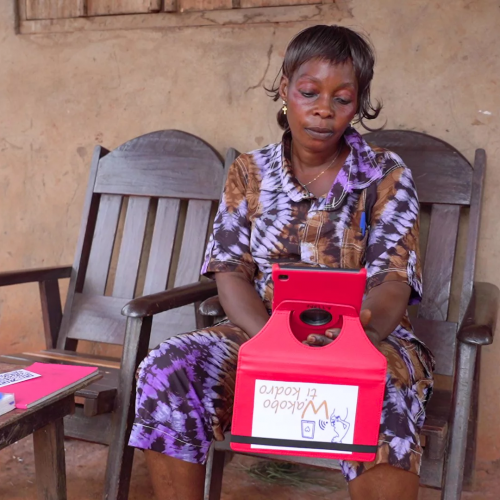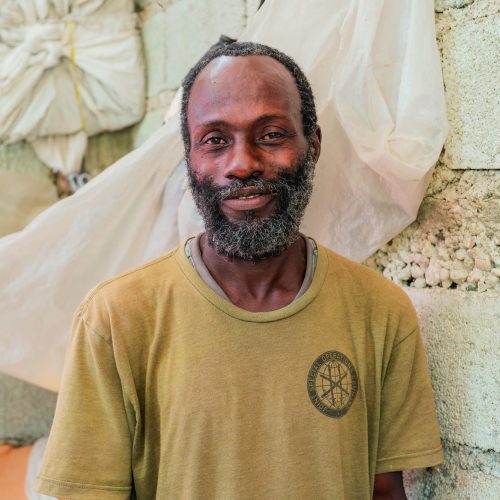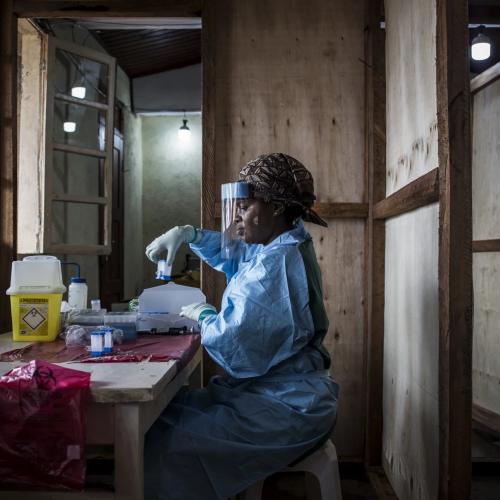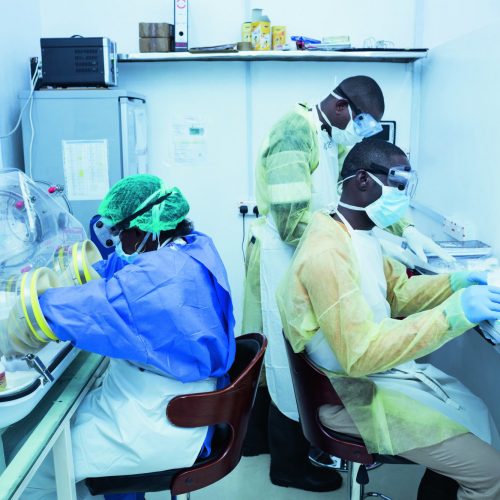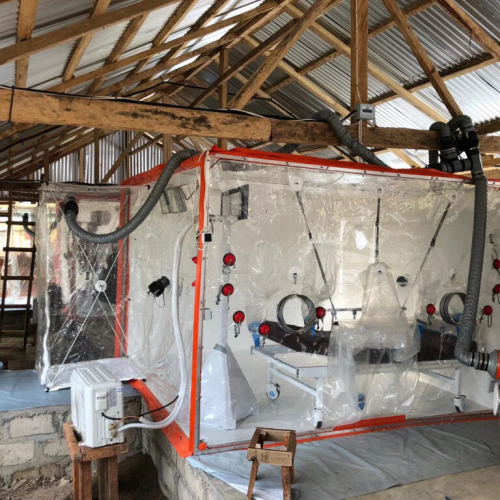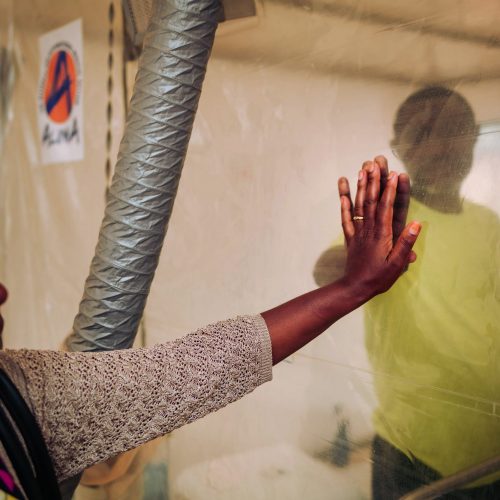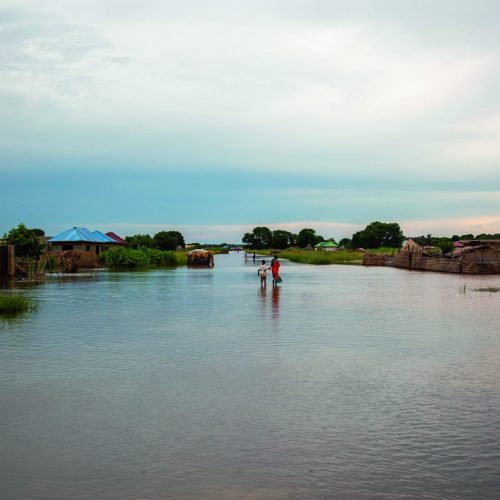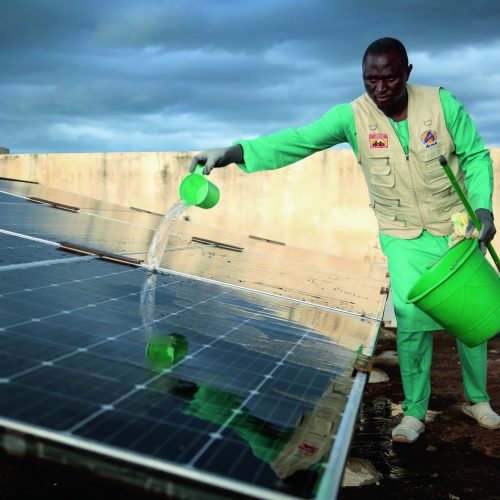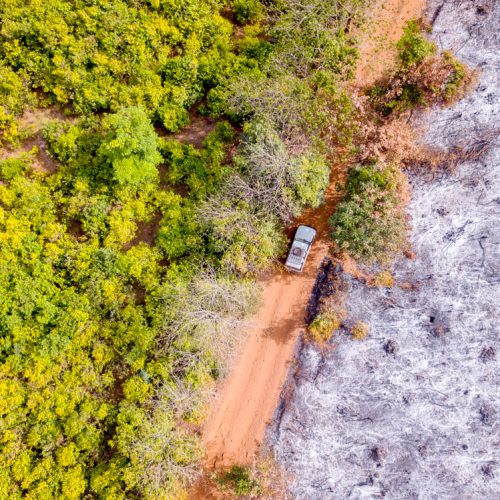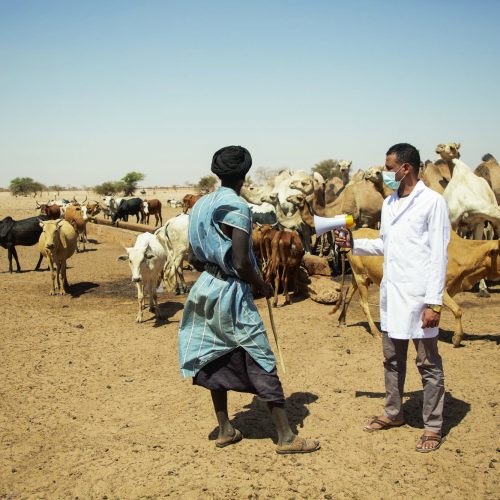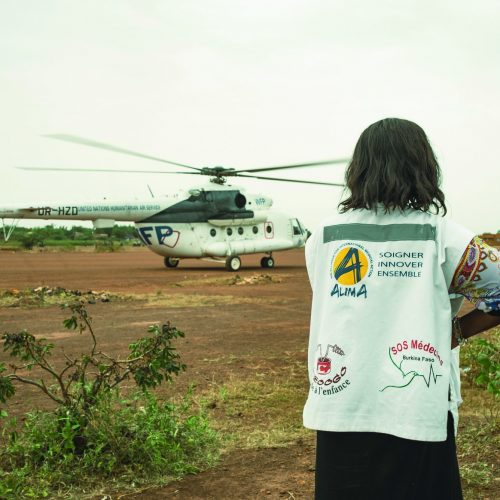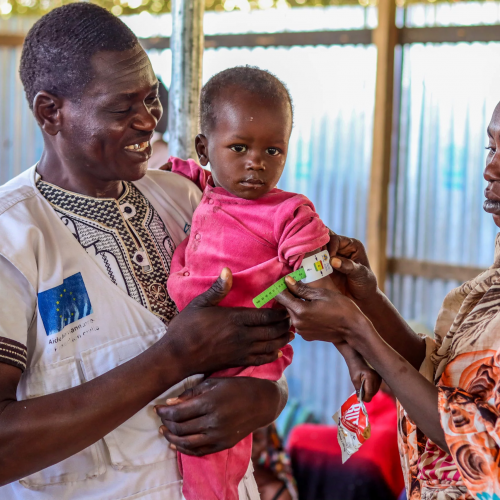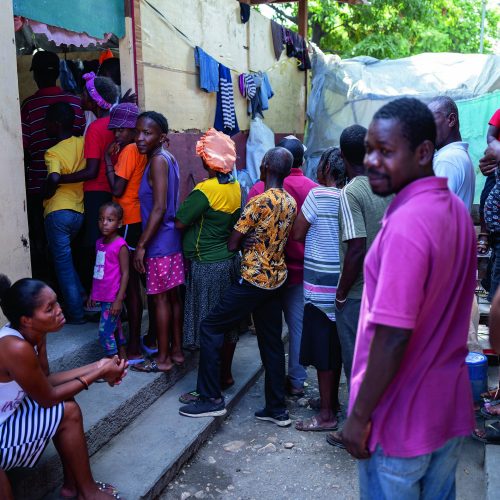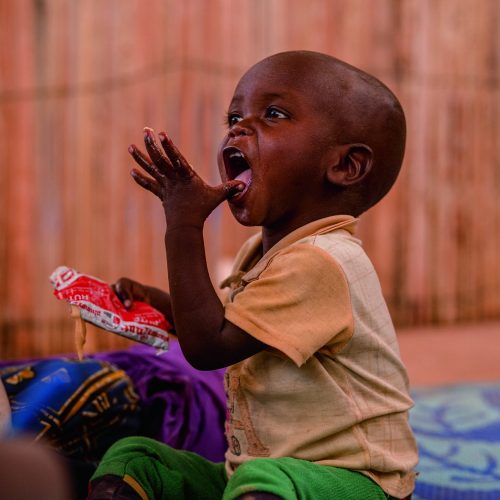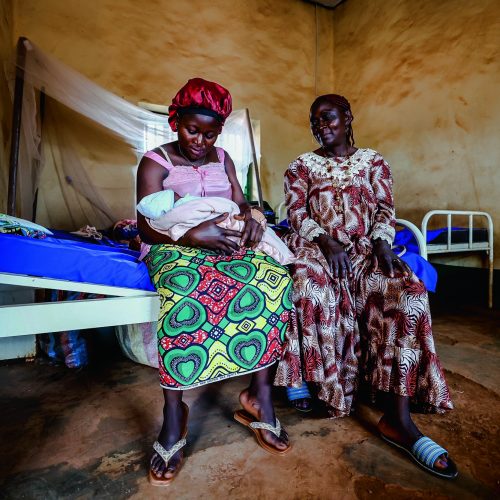Research and innovation
- Only 3.6% of global clinical trials take place in Africa (clinicaltrials.gov).
- Many diseases remain understudied due to a lack of research adapted to local contexts.
- About 20% of ALIMA’s work is dedicated to humanitarian medical research.
In the face of health crises and humanitarian challenges, medical research plays a key role in adapting care to real-world conditions. ALIMA bridges the gap between research and humanitarian action to develop innovative solutions and improve the effectiveness of medical interventions in Africa.
Humanitarian context and challenge
A lack of research in humanitarian contexts
Clinical research is essential to improve medical care, yet it remains underdeveloped in low-income countries. This leads to:
- A lack of clinical trials adapted to the needs of humanitarian fields.
- An insufficient response to emerging epidemics, due to a lack of existing and locally available treatments.
- Standardized care protocols are incomplete for certain diseases in Africa.
💡 Why does this matter?
- An urgent need for solutions adapted to low-resource contexts.
- An essential link between humanitarian action and medical innovation.
- An opportunity to sustainably improve the health of vulnerable populations.
📌 Over 50 research projects have been conducted by ALIMA since 2009.
📌 Over 10 ongoing projects, covering infectious diseases, malnutrition, and maternal and child health.
➡️ To address these challenges, ALIMA places research and innovation at the heart of its mission.
ALIMA’s action
💡 How does ALIMA link research and humanitarian action?
ALIMA develops collaborative and operational research projects to improve medical care in emergency contexts.
🔹 CORAL: a unique collaborative research platform
🔬 Launched in 2016, the Clinical and Operational Research Alliance (CORAL) brings together:
- ALIMA
- Inserm GHiGS (Global Health in the Global South)
- PACCI (ANRS Program, Côte d’Ivoire)
🎯 Goal: integrating medical research into humanitarian action in Africa to fight emerging diseases and improve maternal and child health.
🔹Improving malnutrition management
OptiMA (Optimizing the Management of Acute Malnutrition)
- Tested in Burkina Faso (2016-2018), OptiMA has proven its effectiveness by simplifying treatment protocols for faster and more accessible care.
- The program is being expanded to Niger, Mali, and DRC to treat more children.
- MUAC for Mothers: a tool that enables mothers to detect malnutrition early using a simple bracelet to measure their child’s upper arm circumference.
🔹Clinical research on viral hemorrhagic fevers
Response to Ebola outbreaks and other emerging infectious diseases
- During the 2018-2019 Ebola outbreak in the DRC, ALIMA, in collaboration with the PALM consortium, helped identify two treatments that reduced mortality rates to less than 20% (compared to up to 90% previously).
- Development of innovative solutions such as the CUBE (Biosecure Emergency Room for Epidemics), allowing safe patient care in high-risk environments.
📌 ALIMA is currently leading several studies on emerging infectious diseases to test drugs for Lassa fever (INTEGRATE) or for Ebola post-exposure prophylaxis (IMOVA, EBOPEP).
Our research partners
ALIMA collaborates with many research centers, universities, and health institutions:
🏛 Academic and medical institutions
- Inserm – French National Institute for Health and Medical Research
- IRD – Institut de Recherche pour le Développement
- ISPED – Institute of Public Health, Epidemiology, and Development
- ITM – Institute of Tropical Medicine Antwerp
- INRB – National Institute for Biomedical Research, DRC
International organizations and research programs
- NIH – U.S. National Institutes of Health
- ANRS-MIE – French National Agency for Research on Emerging Infectious Diseases
- EDCTP – Europe-Developing Countries Partnership for Clinical Trials
- ALERRT – African Coalition for Training and Response in Epidemic Research
💊 Clinical research initiatives
- PAC-CI – ANRS Program Côte d’Ivoire
- DNDi – Drugs for Neglected Diseases Initiative
- Unitaid, GiveWell Foundation, Fondation WAM
Our main ongoing research programs
- Wakobo Ti Kodro
- Nutrivax Measle
- RISQ
- OPTIMAX
- EBO-PEP
- IMOVA
- INTEGRATE
Frequently Asked Questions (FAQs)
- To adapt care to real-world challenges.
- To improve protocols for the management of understudied diseases.
- To strengthen responsiveness to emerging epidemics.
- Child malnutrition (OptiMA, MUAC for Mothers)
- Viral hemorrhagic fevers (Ebola, Lassa)
- Maternal and child health & pediatrics (AIRE, Wakobo)
Through collaborations with international research institutes and funding from organizations such as Unitaid, EDCTP, ANRS-MIE, and the GiveWell Foundation.
On the ground
Related news
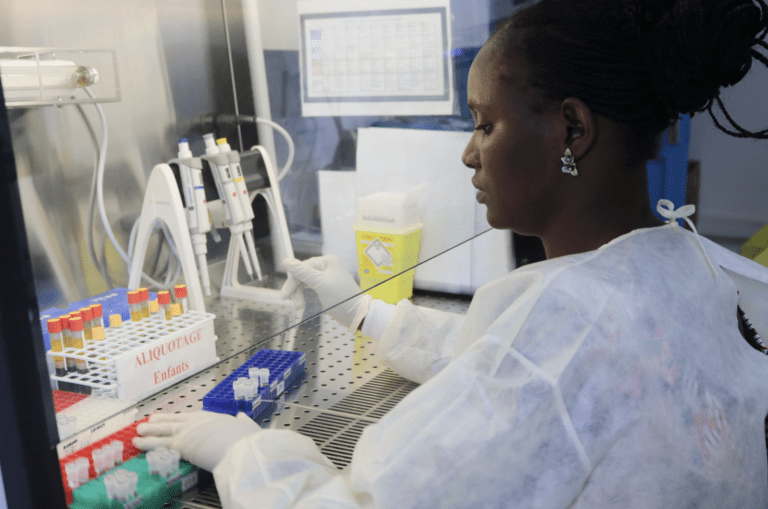
Breakthrough in Ebola Vaccination: Five-Year Immunity Achieved After Injection
A decisive new step has been taken in the fight against the Ebola virus. According to a PREVAC study conducted in Guinea, the immunity conferred
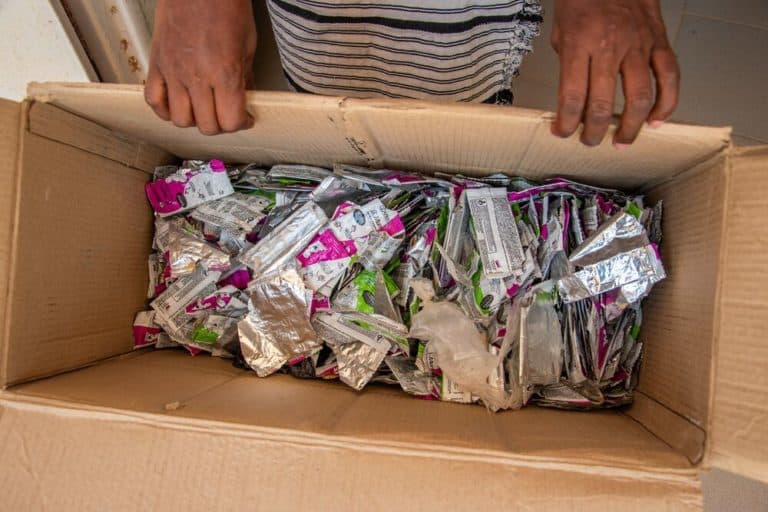
The Plastik Project Revolutionizing Medical Waste Management in Burkina Faso
The waste of two essential items in the healthcare and nutritional response in sub-Saharan Africa poses significant environmental pollution. How can their impact be minimized?
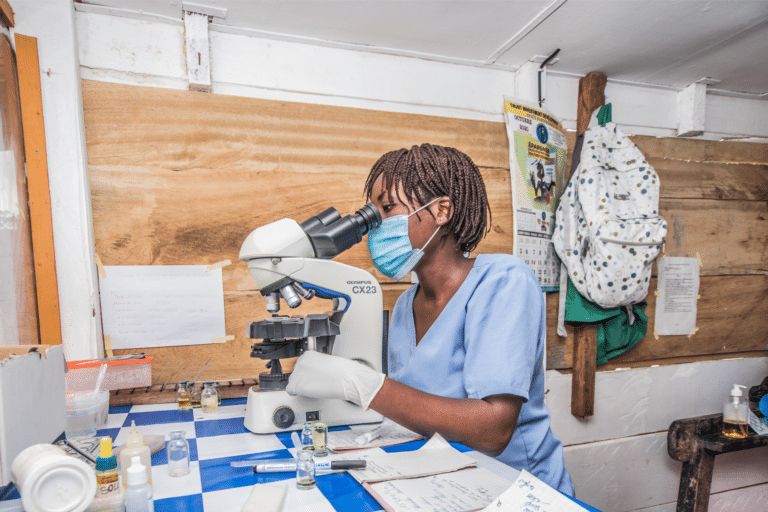
“Researchers and Humanitarians”: Discover Our New Web Series
Collaboration between researchers and humanitarians is key to transforming medicine in Africa. Our new web series explores how these professionals are working hand in hand

